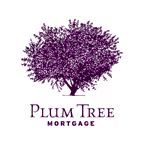|

|
Mortgages
What
Is a Mortgage?
A mortgage is a loan secured by real estate. In other words, in return
for the funds necessary to purchase a home, a lender, gets your promise
to pay back the funds over a certain period at a certain cost.
Backing your promise to repay is the property. Should you default, or
stop paying, the loan, the lender would take over ownership of that
property. Typically, the repayment of a mortgage occurs through monthly
payments.
What
Does My Mortgage Payment Include?
Usually, your monthly mortgage
payment is made up of four parts: principal, interest, taxes and
insurance (PITI), but it can also include maintenance expenses, such
as condominium homeowners' association dues. The principal is the amount
in your monthly payment that reduces the original amount borrowed.
Over
the life of a standard mortgage loan, the entire original amount borrowed
is generally scheduled to be fully paid off, or amortized. The interest
rate is the fee charged to borrow the outstanding balance for the past
month. In addition, a monthly amount may be collected and held in a
separate escrow account to cover property taxes, homeowner's insurance
and mortgage insurance. Your lender uses the money in the escrow account
to pay your tax and insurance bills, as they come due.
How
Do I Qualify For a Mortgage?
In general, all lenders use the same four basic standards to approve
applicants for a mortgage. Different mortgage products have varying
guidelines within those standards. The
lender looks at your income,
credit history, assets and property information.
What
types of loans exist?
Fixed-rate
mortgages.
The interest rate remains fixed for the life of the loan.
- Offer
predictable monthly payments of principal and interest throughout
the life of the loan.
- Provide
protection from rising rates. No matter how high market rates go up,
your interest rate stays the same.
- Generally
well-suited to borrowers who plan to stay in their homes for a long
period of time, have a fixed or slowly-increasing income, and have
a lower tolerance for financial risk.
Adjustable-rate
mortgages.
The interest rate adjusts periodically to reflect market conditions
on pre-determined dates.
- The
initial introductory period usually offers a lower rate (relative
to fixed-rate mortgages), after which the rate adjusts periodically,
based on a market index.
- Borrowers
are protected from steep increases in rates through annual and lifetime
adjustment caps.
- The
initial rate can be locked in for different periods such as one, three,
five, seven, or ten years. Typically, the rate readjusts annually
after the introductory period.
- Because
of the introductory period's lower rate, some
borrowers may be eligible for a larger loan amount with an ARM than
with a fixed-rate mortgage.
- May
be more appropriate for borrowers who may want to sell or refinance
early, can afford to make larger monthly payments after the rate adjusts,
or are looking to buy a home when interest rates are relatively high.
Jumbo
loans.
These are loans that exceed a specified size (conforming loan amounts). In
2009, jumbo loans on single-family homes exceed $417,000.
- Rates
are generally higher on jumbo loans than on smaller comparable loans.
FHA
Loan. The Federal Housing Administration (FHA) insures a wide variety
of mortgages. These loans are designed to meet the needs of homebuyers
with low or moderate incomes and feature:
- Low
down payment requirements
- Loan
limits based on geographic locations Generally more liberal qualifying
guidelines
- Use
of gift funds for down payment and/or closing costs.
VA
Loans.
The Department of Veterans Affairs (formerly the Veterans Administration)
guarantees mortgages for qualified veterans and active-duty military
personnel and their spouses who are first- or second-time homebuyers.
VA loans feature:
- Low
or no down payment requirements
- A
wide range of rate, term, and cost options
- Flexible
qualifying guidelines
- Use
of gift funds for closing costs
Alternative
financing.
These programs are designed for borrowers with less-than-perfect credit
histories, excessive debt, or previous bankruptcy, foreclosure or tax
delinquency.
No
Documentation Loans.
Designed for borrowers who are self-employed, on commission or whose
financial situation may be difficult to document .These loans allow borrowers
to apply for a loan based on their credit history and stated income. Although these were readily available only a few short years ago, today it is rare to find such products. However, we do have opportunities for investors that are looking to purchase "business" designated properties. For homes you are looking to purchase quickly, remodel and sell. Although rates on such mortgages are always high and expensive, this allows many investors to get in and out with little fan fair. Before you consider such an option, make sure you exhaust all other possibilites. Working with a Plum Tree Consultant will insure you make a great decision for your financial situation.
For
more information contact us via email, or
call 503-493-2353.
|
 |


We
help clients see the whole picture.
|
  |

